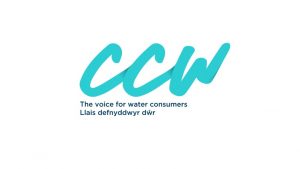The Consumer Council for Water (CCW) has published a report charting the progress that has been made over the past year in delivering the proposals set out in its independent review of water affordability on behalf of the UK and Welsh Governments.
The report shows 6 of its 10 key recommendations have been implemented as part of a wave of changes that are already helping to ease the pressure on households caught up in the cost of living crisis.
These changes include many companies making it easier for low-income customers to apply for financial help, with some offering more flexible payment options. Others are providing a break from water charges for Universal Credit claimants while they wait for their first benefit payment or offering bill guarantees to give customers the confidence to trial a water meter.
The creation of a new water affordability scheme for England and Wales was the review’s central proposal and the UK and Welsh Governments quickly established a development group to explore it further.
It would end the postcode lottery of financial help provided through water companies’ existing social tariffs. These remain hampered by funding constraints and significant regional variations in eligibility criteria, which a universal scheme would rectify by ensuring customers receive fair and consistent support based on their income and need – not where they live.
New legislation would be needed to implement the changes but CCW wants to see the scheme launched no later than April 2025.
Emma Clancy, Chief Executive of CCW, said: “The changes we’ve seen over the past year are already making a difference to water customers and are a testament to the water sector’s determination to be at the forefront of helping struggling households – but we’ve got a long way to go.”
“The cost of living crisis has raised the stakes for the water sector and both governments to make sure we put in place a new water affordability scheme that ends the current patchwork of help across England and Wales. It’s within our grasp and we cannot afford to miss this opportunity.”
Last year’s review found that 5 out of 6 customers who could not afford their water bill were not receiving the help they need – with an estimated 1.5 million households living in water poverty. The pressure on these customers will have intensified over the past 12 months as soaring living costs stretch some people’s budgets to breaking point.
The water sector has responded to the challenge by implementing 26 of the 40 recommended actions from the independent review, helping to keep more money in the pockets of low-income customers. Good progress has also been made against most of the other actions.
Some of the changes include:
- New bill guarantees to give people the confidence to make the switch to a water meter, helping them access typical savings of around £50 each. Overall savings could be worth £48 million.
- Additional benefit checks to help maximise the income of some households – unlocking thousands of pounds in unclaimed benefits. The value to households could be as much as £24 million.
- Water UK and water companies strengthening data-sharing agreements, so companies can more easily identify customers who could qualify for financial help.
- Regulator Ofwat updating its Paying Fair guidance to water companies to ensure debt support more closely reflects a customer’s individual circumstances.
- The regulator is also working on developing a new customer-focused condition for water companies’ licences – requiring companies to consider affordability and vulnerability across all of their operations.
Water companies have been road-testing some of the review’s recommended actions through pilot schemes, with the findings shared with the rest of the industry. These have looked at everything from improving the promotion of financial support for customers to allowing people to pay more or less money towards their bill depending on how much they can afford at the time.
 CCW is now challenging companies to work towards adopting the remaining actions from its review and seek opportunities to use their own profits to enhance support for customers struggling to stay afloat.
CCW is now challenging companies to work towards adopting the remaining actions from its review and seek opportunities to use their own profits to enhance support for customers struggling to stay afloat.
It also wants the UK and Welsh Governments to introduce legislation for a new water affordability scheme at the earliest opportunity to ensure it is in place by April 2025.



